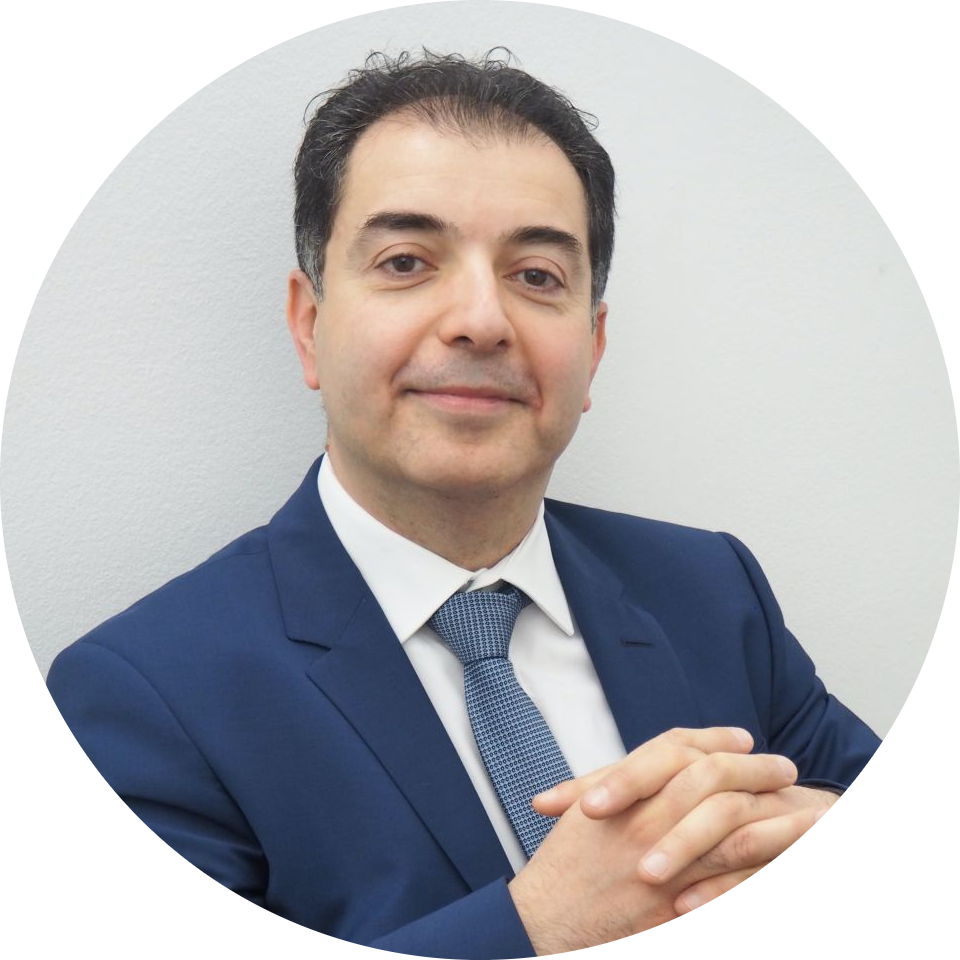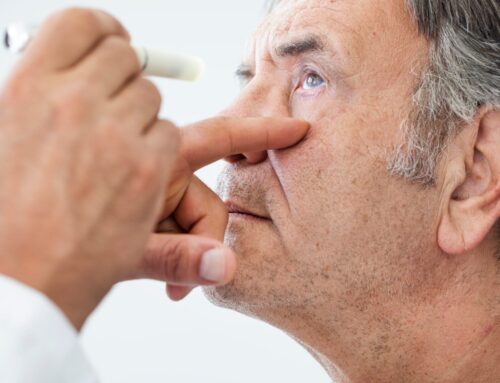
What Is The First Sign Of Cataracts?
As we age, our eyesight can begin to change, and we may notice differences in our vision. One condition that can develop with age is cataracts, which cause cloudiness or blurriness in the lens of the eye.
While cataracts are a common condition, it’s important to detect them early to prevent further vision loss. In this article, we will explore the first signs of cataracts and what you can do to help slow down their progression or undergo treatment if necessary.
How do cataracts form?
A cataract is a clouding of the natural lens in the eye that affects vision. The lens is responsible for focusing light that enters the eye onto the retina, sending visual signals to the brain. When the lens becomes cloudy, it can cause blurry or distorted vision, making it difficult to see clearly.
Cataracts typically develop over time and are caused by changes in the proteins that the lens is build of. This can cause the lens to become less transparent, obstructing the light from entering the retina and leading to vision problems.
While age is a common cause of cataracts, other factors can also contribute to their development.
These can include:
- Genetics
- Medical conditions. Certain medical conditions, such as diabetes, can increase the risk of developing cataracts
- Lifestyle factors., excessive alcohol consumption and prolonged exposure to UV radiation can all contribute to cataracts
- Eye injuries
How do cataracts affect vision?
Cataracts develop slowly over a long period of time, and the symptoms can vary depending on the severity of the condition. To start with, cataracts may not cause any noticeable problems with your vision.
However, as the cataract grows and becomes denser, it can cause the following visual disturbances:
- Blurry or cloudy vision – the lens becomes more opaque, which can cause blurry or cloudy vision.
- Increased sensitivity to light – many people with cataracts may become more sensitive to bright lights or glare, making it uncomfortable to be outside on a sunny day or to drive at night.
- Seeing halos or glare around lights – as the cataract grows, it can scatter light, causing halos or glare around lights.
- Difficulty seeing at night – cataracts can make it more difficult to see in low-light conditions, such as at night or in dimly lit rooms.
- Changes in colour perception – cataracts can also affect colour perception, making colours appear faded or yellowed.
- Double vision in one eye – in rare cases, cataracts can cause double vision in one eye, which can be especially concerning while driving.
Initially, the cloudiness may only affect a small portion of the lens and may not cause noticeable vision changes. But as the cataract progresses, it can cause increasing problems.
What is the first sign of cataracts?
For many people with cataracts, the first sign of the condition is experiencing difficulty with night vision or glare from the headlights of cars.
As mentioned, cataracts typically form slowly over time, and the symptoms can be mild or hard to detect at first. In some cases, people with early-stage cataracts may not experience any noticeable vision changes, and the condition may only be detected during a routine eye exam.
For this reason, it’s important to schedule regular eye exams, especially if you are over 40 years old. Early detection of cataracts can help slow down their progression and preserve vision, so you must be proactive about your eye health.
What age do cataracts usually start?
Cataracts usually start after the age of 50 and are most commonly associated with the natural ageing process. However, certain factors can increase the risk of developing cataracts earlier in life.
Around the age of 40, the proteins in the lens of your eye start to break down and clump together, which can cause the lens to become less transparent and form a cataract. As the cataract develops, it can cause progressive vision changes.
Cataracts are a common condition and they can be treated effectively with surgery, which involves removing the clouded lens and replacing it with a clear artificial one.
However, it’s important to be proactive about your eye health and get your eyes tested regularly to detect cataracts early on.
How long do cataracts take to develop?
A cataract’s rate of development can differ considerably from one person to another, and even between two eyes of the same person. Factors that can influence the speed of cataract development include genetics, lifestyle factors such as smoking and sun exposure and certain medical conditions.
Although very rare, some cataracts may develop in one eye only. So if a cataract forms in one of the eyes, it doesn’t necessarily mean that the other eye will get affected too.
Other signs of cataracts
Some other early signs of cataracts often get confused with a sudden change in vision.
Adults who typically have normal vision can experience a rapid change in their vision and may develop myopia. And those adults who typically wear glasses or contact lenses will notice very frequent changes in their prescription.
It’s important to keep in mind that the symptoms of cataracts can vary depending on the type and severity of the cataract.
How to slow the progression of cataracts
There are some changes you can make to your lifestyle to slow down the progression of cataract development. For example, eating a diet that is rich in fruit, vegetables and whole grains can help support overall eye health and reduce the risk of cataracts. Foods that are high in antioxidants, vitamin C, vitamin E, lutein and zeaxanthin can be particularly beneficial.
Stopping smoking, limiting your alcohol consumption and maintaining a healthy weight can also decrease your risk of cataracts.
It is also important to protect your eyes from harmful UV rays. Wearing sunglasses even on cloudy days should be essential.
Certain health conditions, such as diabetes and high blood pressure, can increase the risk of cataracts. Managing these conditions through medication and lifestyle changes can help reduce your risk too.
Having regular eye exams can help detect cataracts early and monitor their progression over time. If cataracts are detected, then they can be treated sooner rather than later.
Book an appointment for cataracts
If you are experiencing any symptoms of cataracts or have concerns about your eye health, get in touch with us today.
At Eye Clinic London, we provide the highest level of care and expertise in diagnosing and treating cataracts. Our experienced ophthalmologist Mr Samer Hamada offers a range of treatment options — including cataract surgery.
Don’t let cataracts affect your quality of life any longer. Book an appointment with Eye Clinic London and take the first step towards clearer vision.
Sources
https://www.mayoclinic.org/diseases-conditions/cataracts/symptoms-causes/syc-20353790
https://www.nei.nih.gov/learn-about-eye-health/eye-conditions-and-diseases/cataracts
Share This Story, Choose Your Platform!
Suffering from dry eyes?
Take our 2-minute online dry eye assessment to see if we can help alleviate your symptoms and tackle your condition
Our most popular treatments
What our patients say…
“As soon as I met Mr Hamada, I knew I was in safe hands. He is an expert in his field, and very reassuring. His work was impeccable, and I would thoroughly recommend him to anyone wanting a professional, kindly, expert service.”
“I came all the way from the US to be evaluated by Mr. Samer Hamada who provided me with a world-class experience. I was treated with technology that doesn’t exist in the United States. My vision improved significantly since the surgery. Mr. Samer Hamada is definitely a Keratoconus expert.”
“I am glad to be with Mr Hamada. I am glad to be examined by Mr Hamada who acts responsibly and professionally. I never had this experience before from a previous ophthalmologist. I am thankful to Mr Hamada for the successful diagnosis and treatment of my case.”
“What a Consultant. Dr. Hamada is a man who was born for this profession. As soon as we walked into the room you felt that you had met a man who was gentle and kind. His demeanour was of a man who knew his trade. He speaks in a way that you will understand. He explains exactly what is wrong and the way he will help fix it for you.”
“Mr Hamada’s London Eye Care and his team are a delight. Nothing was too much trouble and the help, support, advice and guidance before during and after the surgery was all world class. I have worn glasses since the age of 13 years and had the onset of cataracts for the last five so it has all been very much a life changing experience to be free from glasses once more.”
“Mr Hamada, his assistant Joanna and his ophthalmic technicians provide a caring, efficient and high quality service. From the admin through to the surgical aftercare we were very well looked after and we had a high degree of confidence in Mr Hamada’s abilities. Our daughter’s cataracts have been corrected (under general anaesthetic) and her quality of life has improved substantially. You also feel well cared for throughout – the human touch is vital in healthcare, but not always delivered, so well done and thanks to all of the team.”
“We were referred to Dr.Hamada by one of the UK experts. The expert himself admitted that Dr.Hamada was better than him!! We were not disappointed at all. Dr. Hamada was excellent with my child. His communication skills and knowledge were exemplary. He gave us clear management plan and would not hesitate to recommend him.”
“Dr Hamada is an excellent, highly competent doctor with a very kind and sympathetic manner. His reputation for successfully treating dry eye patients seems unparalleled. His team are all extremely friendly and helpful, especially Dr Hamada’s PA Joanna, making the overall experience better than anywhere else I’ve been!”
“Appointment setting and follow-up were very efficient and well managed. Mr Hamada was kind, reassuring, knowledgeable and had a very warm manner with my young son, making him instantly feel at ease. I feel that we can trust him and that he will finally be able to solve my son’s long-term eye problems that have stumped other eye doctors.”
We have replaced some of the images of real patients who provided these testimonials to protect their privacy.

About the expert
Mr Samer Hamada | Consultant Ophthalmologist and Corneal Surgeon
MD, MSc, DO (hons), FRCSEd, FRCOphth I am Samer Hamada, founder and consultant ophthalmic surgeon with over 20 years’ experience in ophthalmology. I am a world-renowned specialist in cornea, cataract and refractive surgery. I’m not only a leading surgeon but also the only dual fellowship trained in corneal diseases in children from reputable institutions in the UK. At Eye Clinic London I work closely with other consultant ophthalmologists, optometrists and orthoptists to achieve the best outcomes for our patients. Our main aim is to make sure our patients get the safest and best treatments available to them. We put your safety before anything else so you can rest assured that if you choose us you will be in the best and safest hands.












